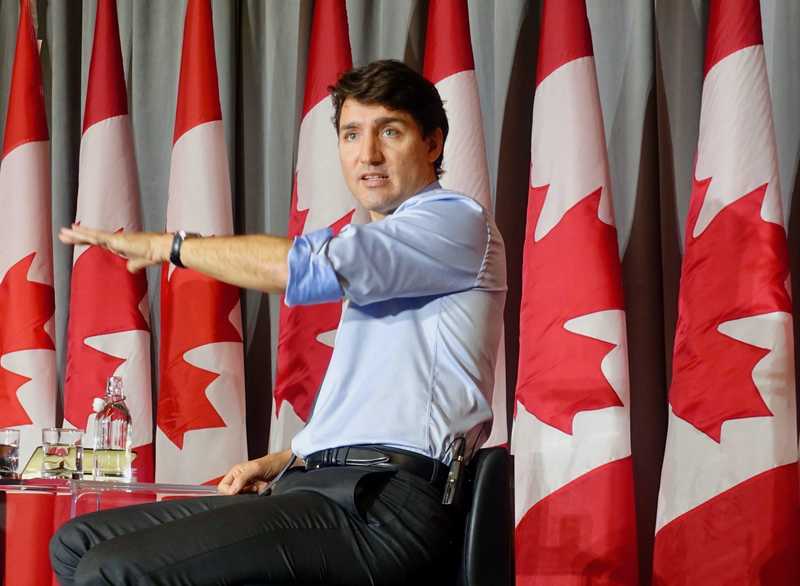Prime Minister Justin Trudeau says ''next summer," and not July 1, is the date cannabis will become legal across Canada. The comment came during an interview with the TVA network's Pierre Bruneau, quickly dispelling the widespread belief that the July 1 date, also Canada Day, is when all 10 provinces and territories must launch their legalization plans.
The broadcast of the morning interview, which was followed by a news article, left many Canadians and news media outlets scratching their heads. “The date will not be July 1, I can assure you of that,” the prime minister told the network. “I don’t know where that date came from.”
How Did the Date for Cannabis Legalization Get Misinterpreted?
When Trudeau announced the Liberal government's plans to legalize recreational cannabis, news outlets jumped on the most alluring parts of the interview: marijuana legalization itself and the Liberal government's reasons for the movement.
The July 1 date was floated after a March 27 CBC article, which stated that the government would legalize by (though not on) July 1, 2018. Before that, the speculation was that cannabis would be legalized in Canada on April 20 of this year. A notorious day for recreational marijuana use and rallies alike.
It’s important to note that the July 1 date has been disputed for months now. As the House of Commons debated Bill C-45, the July 1 date came up repeatedly from critics and the media, but in hindsight, it's unlikely that it was ever going to be when recreational marijuana would become legal. The Liberal party only ever said July 2018.
Even Bill Blair, the Liberal member on the forefront of cannabis legalization iterated the start of July as a benchmark for legislation and regulation but thought that Canada Day would be a bad day for stores to open, saying, "I don't think that's an appropriate date. That's my opinion." In November of last year, Blair clarified that July 1 would not be the date, though Trudeau was never as clear as he was in the TVA interview that took place just before the 2017 holidays.
Canada's Marijuana Legalization Timeline
A statement issued by the Health Department in November said, "As previously indicated, the government of Canada intends to bring the proposed Cannabis Act into force no later than July 2018.''
However, as provinces rush to set up their infrastructure, rules and regulations, the enforcement task forces and educational programs, it's not impossible for the legalization timeline to experience delays. Members of both the NDP and the Conservatives, from nearly all provinces and territories, have also said the Liberals are rushing the process of legalization, and a delay would be reasonable given the complexity of the issue.
And that's not all. There's still the question of whether Bill C-45 will survive its time in the Senate.
How Will the Senate Influence the Cannabis Legalization Timeline?
The Senate only debated the bill for about one hour before leaving for the winter break. With five months between the time when the Senate returns in February and July, it will be their challenge to figure out the fate of the cannabis bill. It's not impossible, but here’s what must happen within those months:
- Jan. 30: Senate returns to chambers.
- Feb. 6: A Senate committee will address questions from the senators while they debate over a second reading of the bill.
- From there, C-45 must pass a third reading to continue. Any amendments made by the committee must be agreed upon with the House of Commons, and this in turn tacks on more time to the process.
- June 21: Summer starts.
- June 22: The House of Commons sits for its final day.
- June 28: The Senate sits for its final day. Any legislation needs to be accepted by both chambers and receive royal assent by this date, barring any changes to either sitting schedule.
Since Prime Minister Trudeau said "next summer" without offering any more specifics, it could mean that provinces are pushed to legalize as early as June. The Senate of Canada has pushed through extensively complicated bills in less time than five months, so it’s not beyond the realm of possibility for this scenario to happen. On the other hand, the statement could mean Sept. 22, the final day of the summer—or any date in between.
The worst-case scenario for the Liberal party would be for the Senate to reject the bill all together and send it back to the House, although this is unlikely seeing as even the "independent" senators have Liberal-leaning views and voting histories.
Photo credit: Steve Jurvetson
